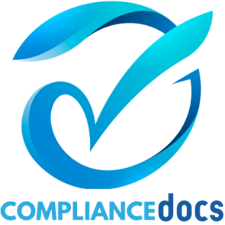The Process of Obtaining ISO Certification in the UAE: A Comprehensive Guide
ISO certification is a vital step for businesses in the UAE seeking to establish credibility, improve operations, and comply with industry and government requirements. The process involves several stages, from selecting the appropriate standard to achieving compliance and passing audits. Here’s a detailed look at the process of obtaining ISO certification in the UAE, along with regulatory and industry-specific considerations.
1. Understanding ISO Standards
The first step is to identify the ISO standard that aligns with your business objectives. Common standards in the UAE include:
- ISO 9001: Quality Management Systems
- ISO 14001: Environmental Management Systems
- ISO 45001: Occupational Health and Safety Management Systems
- ISO 27001: Information Security Management Systems
- ISO 22000: Food Safety Management Systems
2. Regulatory and Industry-Specific Considerations
In the UAE, certain industries have specific compliance requirements tied to ISO standards:
- Oil and Gas Sector: Companies must meet ADNOC supplier requirements, which often include ISO 9001, ISO 14001, and ISO 45001 certifications.
- Construction: Compliance with local safety regulations and environmental laws aligns with ISO 45001 and ISO 14001 standards.
- Healthcare: ISO 9001 and ISO 13485 certifications are critical for ensuring quality and safety in healthcare facilities and medical device manufacturing.
- Technology: ISO 27001 certification is vital for companies managing sensitive data in alignment with UAE data protection laws.
3. Conducting a Gap Analysis
Perform a gap analysis to assess your organization’s current processes and identify areas that do not meet the chosen ISO standard’s requirements. This step helps prioritize actions needed for compliance.
4. Developing a Management System
A management system tailored to the ISO standard must be implemented. This involves:
- Creating policies and procedures that meet the standard’s requirements.
- Documenting key processes, workflows, and responsibilities.
- Establishing measurable objectives to ensure ongoing improvement.
For instance:
- ISO 9001: Focus on customer satisfaction and quality control processes.
- ISO 45001: Emphasize risk assessments and safety protocols.
- ISO 14001: Develop environmental management plans to reduce impacts.
5. Employee Training and Awareness
Employees play a critical role in the success of ISO implementation. Training programs should be conducted to:
- Educate staff about the importance of ISO certification.
- Train them on new procedures and their roles in compliance.
- Foster a culture of quality, safety, or sustainability.
6. Internal Audits
Conduct regular internal audits to evaluate the effectiveness of the management system. Internal audits help:
- Identify non-conformities and areas for improvement.
- Ensure processes align with ISO requirements.
- Prepare for the external audit.
7. Choosing a Certification Body
Select an accredited certification body to conduct the external audit. Ensure the certification body is recognized by relevant UAE authorities and is experienced in your industry.
8. External Audit Process
The certification process involves two stages:
- Stage 1 (Documentation Audit): The auditor reviews your documented management system to ensure compliance with ISO requirements.
- Stage 2 (On-Site Audit): The auditor assesses the implementation of your management system by observing operations and interviewing employees.
9. Certification and Maintenance
If your organization successfully passes the audit, you will receive your ISO certificate. Certification is typically valid for three years, during which:
- Surveillance Audits: Annual audits ensure ongoing compliance.
- Continuous Improvement: Regularly review and enhance processes to maintain certification.
Benefits of ISO Certification in the UAE
- Regulatory Compliance: Meet local laws and industry-specific requirements.
- Enhanced Reputation: Build trust with clients, partners, and stakeholders.
- Market Access: Gain eligibility for ADNOC and government contracts.
- Operational Excellence: Streamline processes and reduce inefficiencies.
Conclusion
The journey to ISO certification in the UAE is a strategic investment that brings long-term benefits, from enhanced operational efficiency to greater market credibility. By following a structured approach and addressing industry-specific considerations, your business can achieve ISO certification and thrive in the UAE’s competitive landscape.
Need assistance with ISO documentation or implementation? Contact us for expert guidance and tailored solutions.






0 Comments